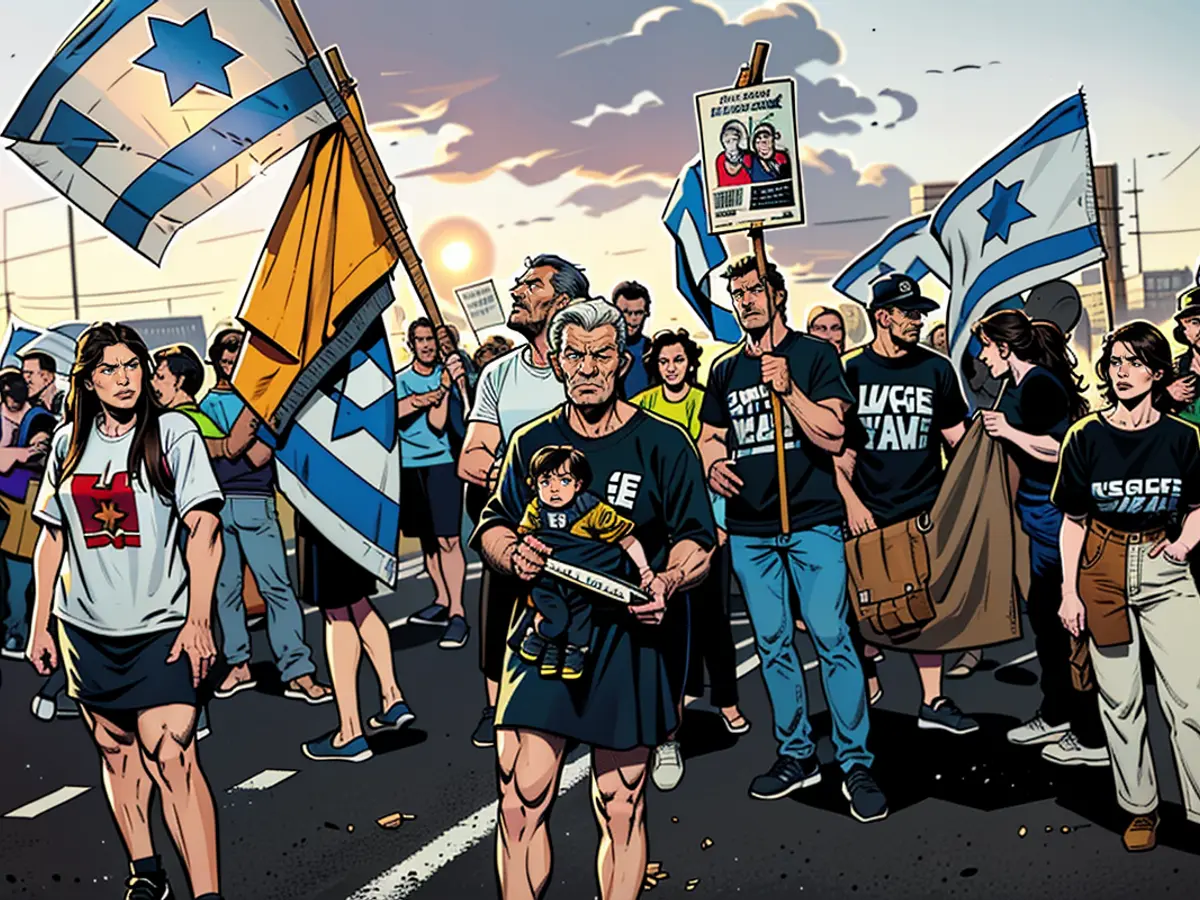Judgment Issued to Terminate Nationwide Labor Stoppage in Israel
After considerable protests, family members of captives and political adversaries of Prime Minister Netanyahu express their dissatisfaction through a nationwide work stoppage. Various parts of the country come to a halt for several hours. Subsequently, a court mandates an immediate halt to the blockade.
Minutes after the commencement of a nationwide work stoppage in Israel, aimed at expediting the release of captives in the Gaza Strip, the court issued a directive for an immediate cessation of the strike. The court ruling stated, "A countrywide injunction is issued to halt the ongoing work stoppage," following a petition from the right-wing Finance Minister Bezalel Smotrich. The strike was to be terminated that very day. Smotrich levied legal objections against the work stoppage, claiming it was politically motivated and had no relation to wage disputes.
Transport delays were reported in public transportation, leading to cancellations of flights at Ben Gurion Airport. Banks and certain shopping malls remained closed, but there were minimal interruptions. Areas in central Israel, including Tel Aviv, participated in the work stoppage. The duration of school hours was reduced, and kindergartens and daycare centers were shut down. However, other areas did not participate, such as Jerusalem.
The work stoppage was instigated by Israel's Histadrut labor federation, in response to appeals for increased pressure on Netanyahu's government concerning a hostage agreement and from relatives of captives, as well as the opposition. Employees in administrative roles, hospitals, and public transportation were instructed to halt work from 6 am local time (5 am CET). Businesses, restaurants, markets, and schools were to remain closed. However, Histadrut chairman Arnon Bar-David announced that the union would adhere to the court order and instruct its members to resume work.
Netanyahu encouraged to swiftly finalize hostage deal
The aim of the work stoppage after the recovery of six Hamas-claimed hostages in the Gaza Strip was to boost pressure on the government for an immediate release of surviving hostages. The six deceased hostages were found in a tunnel in Rafah, southern Gaza Strip, on Saturday. The Israeli Health Ministry attributed their deaths to Hamas militants who killed them with multiple gunshots at close range, approximately 48-72 hours before their autopsy on Sunday.
Thousands of people took to the streets in Israel on Sunday evening, expressing their sorrow and fury over the discovery of six hostages in the Gaza Strip. Family members of the deceased and the broader Israeli public laid the blame on Prime Minister Benjamin Netanyahu, alleging his government could have facilitated their survival if a deal with Hamas had been reached. The protests reportedly marked the largest since the start of the conflict. The organizers estimated a turnout of up to 500,000 nationwide, with media estimates ranging from 200,000 to 400,000.
Some individuals in the country, however, backed Netanyahu's tactic of continuously applying military pressure on the Hamas terrorist organization, asserting that such pressure will eventually coerce the extremists to give in to Israeli demands, potentially leading to successful rescue operations and the dissolution of Hamas. Hamas initiated the conflict with its terrorist attack on Israel on October 7.
Approximately 100 hostages are still estimated to be in the Gaza Strip, with approximately one-third assumed to be deceased. Netanyahu accused Hamas of hindering progress in negotiations over a ceasefire and the release of hostages, which have been ongoing.
Following the nationwide work stoppage in Israel, calls for Prime Minister Netanyahu to expedite a hostage deal increased, particularly in relation to the Gaza Strip. The work stoppage was primarily inspired by the discovery of six Hamas-claimed hostages in the Gaza Strip, leading to severe public backlash against Netanyahu and his government for not facilitating their release.








